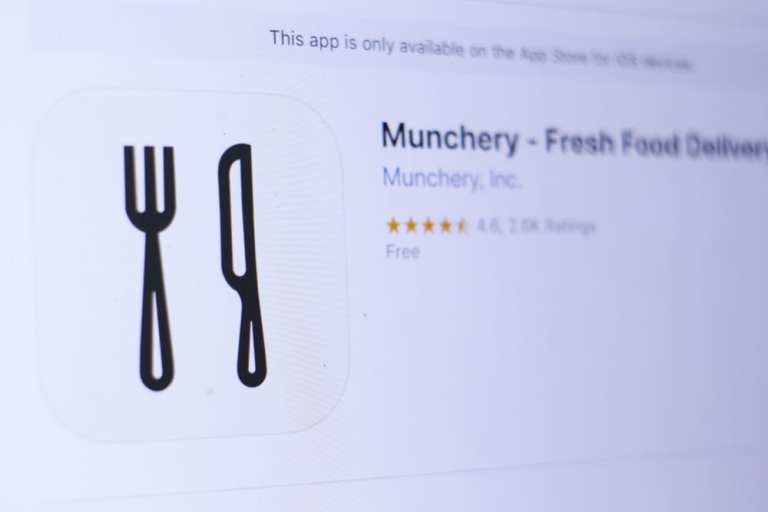Meal kit service Munchery has filed for bankruptcy and still owes $3 million in unfulfilled customer gift cards and another $3 million to its vendors and suppliers.
The company ceased operations in late January after laying off 30 percent of its workforce in May 2018. That came after it shut down service in Seattle, Los Angels, and New York. Munchery had said it was planning to focus on its largest market, San Francisco, in an effort to become profitable, but that never happened.
“Since 2010, we have been committed to bringing fresh, local, and delicious meals into your homes along with all our customers across the country,” the company wrote in the email announcement in January. “We’ve been delighted to work with world-renowned chefs, experiment with diverse and unique ingredients and recipes, and be a part of your holiday feasts and traditions. We have also enjoyed giving back to our community through meal kit donations, volunteer service, and so much more.”
Reports noted that in the Chapter 11 bankruptcy filing, Munchery’s CEO James Beriker pointed to increased competition, over-funding, aggressive expansion efforts and Blue Apron’s failed IPO as reasons for his company’s failure.
“The company expanded too aggressively in its early years,” the filing states. “The access to significant amounts of capital from leading Silicon Valley venture capital firms at high valuations and low-cost debt from banks and venture debt firms, combined with the perception that the on-demand food delivery market was expanding quickly and would be dominated by one or two brands — as Uber had dominated the ridesharing market — drove the company to aggressively invest in its business ahead of having a well-established and scalable business model.”
We’d love to be your preferred source for news.
Please add us to your preferred sources list so our news, data and interviews show up in your feed. Thanks!
In addition to the $6 million owed to its customers and vendors, Munchery also has $5.3 million in senior secured debt, as well as convertible debt of approximately $23 million. The company revealed it will earn $5 million from the sale of its equipment, machinery and San Francisco headquarters.
Advertisement: Scroll to Continue
The business had raised more than $100 million in venture capital funding from investors including Menlo Ventures, Sherpa Capital, e.Ventures, and Cota Capital, among others.
The company not only failed to notify its vendors it was going out of business, but emails viewed by reporters show that Munchery was still marketing its gift cards to customers in December, weeks before it announced it was shutting down immediately.
And Munchery’s vendors have been vocal about their unhappiness with the company and its CEO. Lenore Estrada of Three Babes Bakeshop, who is owed thousands of dollars in unpaid invoices from Munchery, organized a protest outside of Sherpa Capital’s offices in January.
“None of us who are owed money are going to get anything,” Estrada said. “But [Beriker], after f—-ng it all up, is still getting paid.”
Beriker is currently earning a salary of $18,750 per month, as well as a “success fee based on the net proceeds recovered from the sale of the company’s assets up to a maximum of $250,000,” the filing states.

